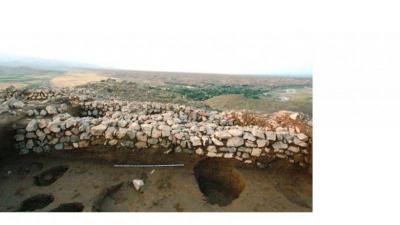
The Naxcıvan Archaeological Project, a joint American-Azerbaijani program of surveys and excavations co-directed by Lauren Ristvet (Penn, Anthropology), studies the north-eastern frontier of Greater Mesopotamia. Ongoing surveys reveal how the interaction between nomads, local centers and external empires created a unique political landscape in the Caucasus. Our work at Oglanqala, the largest archaeological site in Naxcıvan, Azerbaijan, analyzes economic and cultural imperialism at this fortress during the Achaemenid Persian Empire (550–330 BCE). Current excavations focus on unearthing the ancient imperial palace, where some of the first evidence of writing in Azerbaijan was found and exploring a neighborhood in order to understand how imperial policies affected everyday life. Naxcıvan is one of the first projects in the least explored area of the Near East.
